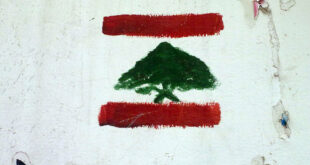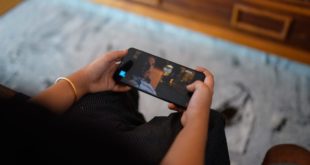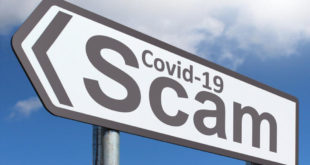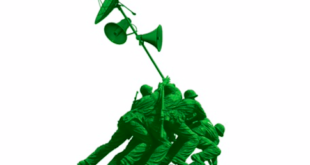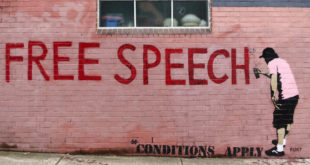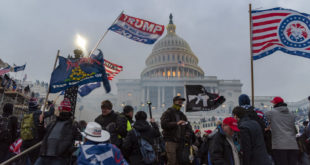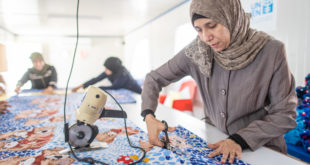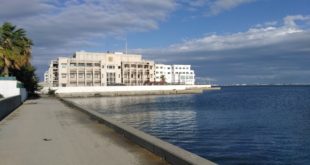Issue 33, winter/spring 2022 https://doi.org/10.70090/ANJE22IL Abstract In Lebanon, sports have been heavily linked to politics and religion. The purpose of this study is to investigate the influence of politics on Lebanese sports in the two most prominent sports fields, football and basketball, using the Spiral of Silence and the Two-Step …
Read More »Features
“I’ll See You on Zoom!” International Educators’ Perceptions of Online Teaching Amid, and Beyond, Covid-19
Issue 30, summer/fall 2020 https://doi.org/10.70090/ASSK20ZI Abstract When the COVID-19 pandemic swept the world in 2020, it affected every aspect of life, including education. The spread of this pandemic compelled the world to shift from traditional classroom education to online learning. This exploratory qualitative research study investigates the critical and timely …
Read More »Impact of US Drama Binge-Watching in the Emirates: Third-Person Effect and Cultural Self-Conceptual
Issue 30, summer/fall 2020 https://doi.org/10.70090/AA203PEC Abstract The study investigates respondents’ perception of the negative effects of US drama binge-watching on their cultural values as compared with its perceived effects on the cultural values of others. The study helps in understanding the extent to which Arab residents in the United Arab …
Read More »COVID-19 Pandemic and Diffusion of Fake News through Social Media in the Arab World
Issue 30, summer/fall 2020 https://doi.org/10.70090/HK20C19P Abstract Social media platforms are among the most widely used sources of information in the world. During the COVID-19 Pandemic, the public needs access to timely and reliable information about the disease symptoms and their prevention. Thus, this study aims to determine the respondents’ perception …
Read More »Information At War: Hamas vs. the IDF
Issue 30, summer/fall 2020 https://doi.org/10.70090/PS20IWHI Excerpted from Information at War: Journalism, Disinformation, and Modern Warfare To be published by Polity Books, summer 2021 The persistent conflict between Israel and Hamas only occasionally attracts much attention beyond its own region, but for the women, men, and children on the ground this …
Read More »Trump, Twitter, and Regulation of Big Tech: Perspectives from the Arab World
The suspension of the Twitter account of former U.S. president Donald Trump after violating the platform’s publishing policies brought forth significant controversy and aroused many questions about the right to freedom of expression and its boundaries, not only in the United States, but across the globe. In the Arab region, …
Read More »Regional Media Debate the Strength of American Democracy
For a region that has had to deal with the aftermath of decades of U.S. intervention, occupation and punishing sanctions under the banner of democracy and human rights, the live pictures of American pro-Trump rioters storming the U.S. Capitol were nothing short of astounding. Public ridicule and scorn came fast …
Read More »Rami Khouri on Lebanon’s Outlook and What Has Happened to the Country’s Media
Issue 30, summer/fall 2020 https://doi.org/10.70090/SS29RKLOg On October 17, 2019, protests began in Lebanon with angry and largely disenfranchised citizens calling for a complete overhaul of the country’s unique political system. In the year that has followed, Lebanon has suffered through one disaster after another, with seemingly unending political shifting. On …
Read More »Info-Deficiency in an Infodemic: The Gender Digital Gap, Arab Women and the COVID-19 Pandemic
Issue 30, summer/fall 2020 https://doi.org/10.70090/SKEC29DI Abstract: This article tackles the complex struggles faced by Arab women, including multiple layers of invisibility, marginalization and inequality,[1] all of which have significantly worsened during the COVID-19 pandemic. This examination includes a special focus on how and why the “digital divide,” defined as the …
Read More »The Development of British Public Diplomacy in the Arab World
Issue 30, summer/fall 2020 https://doi.org/10.70090/AAR29BPD Abstract This paper attempts to map the major changes and developments of British public diplomacy in the Arab world. I argue here that the BBC and the British Council have greatly assisted British public diplomacy efforts and can be regarded as effective because exerting influence …
Read More » Arab Media & Society The Arab Media Hub
Arab Media & Society The Arab Media Hub
